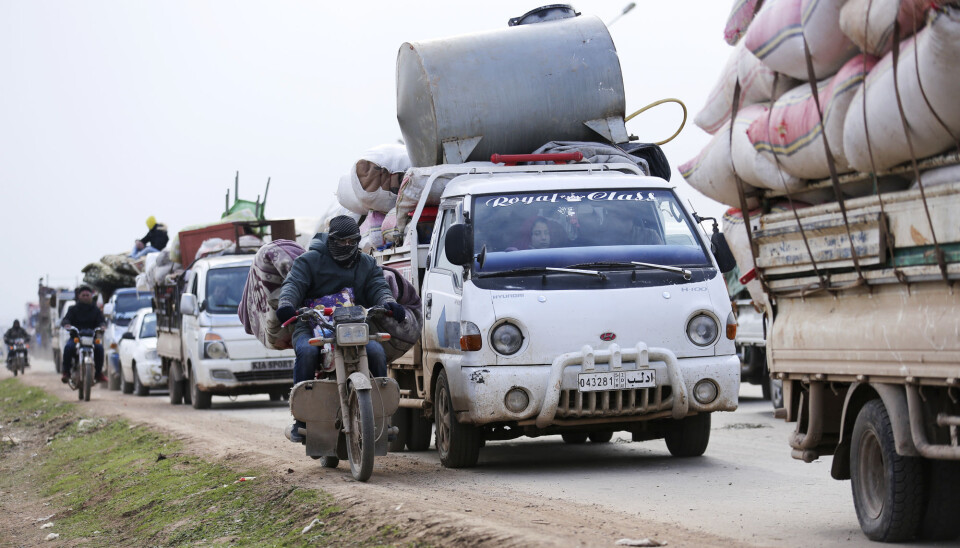
90 per cent of Syrian refugees in Norway have had life-threatening experiences
Had been in life-threatening danger before they fled the country or during their attempts to reach safety, according to a new report.
This figure comes from the first national study of Syrian refugees in Norway, their mental health and quality of life.
Around 40 per cent of the refugees had experienced five or more potentially traumatic experiences before they fled the country, according to a press release from NKVTS .
95 per cent said that they had experienced war firsthand, and 90 per cent that they had been in life-threatening danger before fleeing or during the flight.
Just over a third of the men reported having experienced torture, compared to just over 18 per cent of the women.
The research has been conducted by researchers from NKVTS, the Norwegian Centre for Violence and Traumatic Stress Studies, under their REFUGE-study.
Problems after arrival
In the study, refugees were also asked about their experiences after arriving in Norway.
More than half of them responded that they were sad to not be reunited with family members. Almost 44 per cent were frustrated that they were unable to use their competencies in Norway. 10,5 per cent were stressed about financial issues, while just above 5 per cent had experienced a lack of respect from their new surroundings.
Countrywide study
The goal of the REFUGE study is to gain more knowledge about the health and quality of life after having fled war and settled in a new country, writes the Norwegian news agency NTB.
900 Syrians who arrived in Norway between the years 2015-2017 have participated in the study.
About half of them arrived as asylum seekers, about a third were quota refugees, and 15 per cent came on grounds of family reunification.
“The REFUGE-study is a countrywide study which will give us new knowledge about the health, quality of life and levels of integration among refugees in Norway over time”, says NKTVS-researcher Arnfinn J. Andersen to NTB.
While cautioning that the results of the study are based on what the refugees themselves answer – in contrast to clinical or diagnostic interviews – the researchers behind the report conclude that there is a need for action on behalf of the Syrian refugees. They call for “interventions that can alleviate symptoms, improve quality of life, and prevent further mental health deterioration among refugees from Syria living in Norway.”
Refugee camps exacerbate health problems
The health conditions that refugees live under while trying to reach a new country to call home have previously been studied by researchers from NTNU, the Norwegian University of Science and Technology.
People in Greek refugee camps, studied in 2016, had experienced much more trauma and had more chronic health conditions than the average European population. When arriving at the camps, people were not necessarily in such bad health compared to the general Europan population – but the longer they stayed, the worse it got.
“The findings are alarming”, NTNU-professor Terje Andreas Eikemo has previously said to sciencenorway.no.
"It is obvious that staying in the camps is exacerbating the health of both children and adults," he said.
Reference:
Solberg, Øivind et al (2020). Mental health and quality of life among refugees from Syria after forced migration to Norway: Main findings from the REFUGE study. Nasjonalt kunnskapssenter om vold og traumatisk stress. (Rapport 1/2020).































